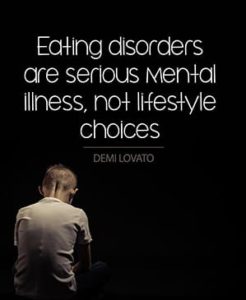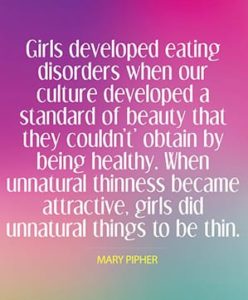How disordered eating is different from an eating disorder?

It is quite funny to learn and understand how just an interchanging two words can mean so differently in its meaning and experience.
By definition, Disordered eating is a term used for unhealthy eating behaviours and worries about body image. It is quite common. Some of the most common types of disordered eating are dieting and restrictive eating. Others include self-induced vomiting, binge eating, and laxative abuse.
An eating disorder is a mental disorder defined by abnormal eating habits that negatively affect a person’s physical or mental health.
An eating disorder is quite easy to diagnose. There are several types to it: anorexia nervosa, bulimia nervosa, binge eating disorder, avoidant restrictive food intake disorder, other specified feeding or eating disorder, unspecified feeding or eating disorder.
These are characterized in The Diagnostic and Statistical Manual of Mental Disorders -V (DSM-V). However, if a person is not meeting the criteria for an eating disorder, it does not mean that the person is having a good relationship with the food by default.
What is disordered eating?
Disordered eating is when one starts engaging in abnormal food eating patterns or consumption on a regular basis. For example, a certain count of calories and excessive monitoring of eating a certain type of food can also correlate with body image issues.
It is also important to note that all eating disorders can be categorized as disordered eating. However, it is not necessary that disordered eating will snowball or become an eating disorder.

Reasons and symptoms behind disordered eating
1 )Source of distraction: If a person keeps a hysterical check on the calorie intake to lose weight in order to distract oneself from another life stressor. Once, the goal is achieved, the person sets a lower goal in order to keep oneself occupied.
2) Avoidance: Not different from the first one, but in order to avoid one’s own uncomfortable emotions, the person starts consuming mindlessly. It can soon snowball into an eating disorder like binge eating.
3) Rigid Routine for Exercise: The zero compromise rule for the work out in order to shed the extra-large meal or rigorously going for exercise can also be a symptom for the same.
4) Facing Anxiety around social gatherings: When one is having anxiety in a social gathering while consuming food or avoidance of gathering due to the urge of overeating.
5) Body Image Issues: The lack of self-worth can also make it problematic as the person is not satisfied with his body image and always feels insufficient.
What is an eating disorder?
Eating disorders are illnesses in which the people experience severe disturbances in their eating behaviours and related thoughts and emotions. People with eating disorders typically become pre-occupied with food and their body weight. (American Psychiatric Association)
How disordered eating and eating disorder dovetail?
The above-mentioned symptoms of disordered eating can also be seen in a person suffering from an eating disorder. However, the degree and its intensity change. Body Image issues and low self-esteem are two psychological causes which predominate in both cases.
There is no denying the fact that these are a product of social conditioning. Societal constructs developed through the consumption of erratic television and movies in our society.
Precautions to take:
1) Throw off your scale: When you feel the urge to measure your body weight, take a break and hide it from your view or give it to a relative to save your self-esteem. You do not need to measure your body weight the first thing in the morning to equate it with your self-worth.
2) Embrace positive talk: When feeling guilty about your body image, remind yourself how beautiful you look in your own way. Negative compulsive thought processes can trigger a lot of negative emotions, ending up in a binge eating spree.
3) Join a self-help group or Counseling: It helps when you can relate to someone who faces the same situation. A counsellor or therapist is not a bad option.
4) Avoid that fad diet: Just because everyone is going for that keto diet, and having tremendous results, it does not mean that it will work for you as well. Everybody is different with different metabolism. Assess the diet you go for properly with your own dietary needs and then go for it. Nobody’s ass got saved in the eternal rat race
5) Be aware and mindful: A good eating practice might help you in being more cognizant about your needs and emotions.




